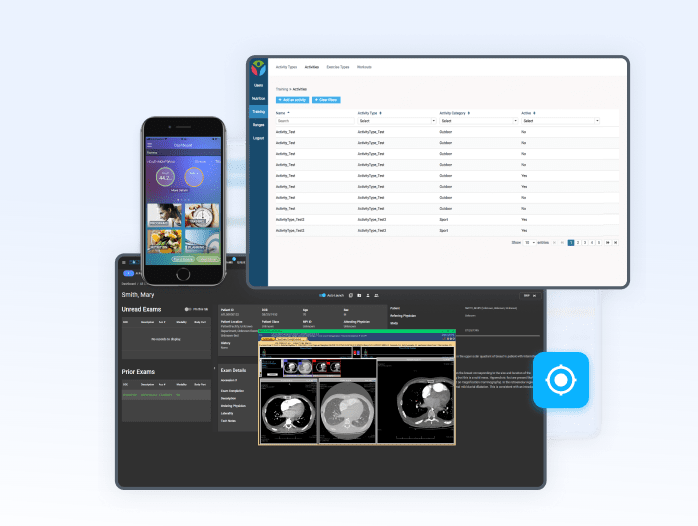AI Solutions for Healthcare: Revolutionizing Patient Care

Introduction
In the ever-evolving landscape of healthcare, artificial intelligence (AI) emerges as a beacon of innovation. AI solutions for healthcare are revolutionizing patient care, introducing unprecedented efficiency, accuracy, and personalized treatment options. This article delves into the diverse facets of AI's role in healthcare, shedding light on its transformative power.
Leveraging AI for Diagnostics
AI-Powered Imaging Techniques AI solutions for healthcare are reshaping diagnostics through advanced imaging technologies. Cutting-edge algorithms analyze medical images, aiding in the swift and accurate detection of anomalies. This not only expedites diagnosis but also enhances precision, ensuring patients receive timely and targeted interventions.
Predictive Analytics in Disease Identification Harnessing the power of predictive analytics, AI contributes to early disease identification. By analyzing vast datasets, AI algorithms can forecast potential health risks, allowing healthcare professionals to implement preventive measures and personalized treatment plans.
Personalized Treatment Plans with AI
Tailored Medication Regimens AI-driven algorithms analyze patient data to create personalized medication regimens. This approach considers individual genetic makeup, ensuring treatments are not only effective but also minimize adverse effects, marking a significant stride toward precision medicine.
Remote Patient Monitoring AI solutions enable continuous remote patient monitoring, providing real-time data to healthcare providers. This facilitates proactive interventions, reduces hospital readmissions, and empowers patients to actively participate in their care.
Enhancing Healthcare Operations
Optimizing Resource Allocation AI's prowess extends to optimizing resource allocation within healthcare facilities. Smart algorithms streamline administrative tasks, allowing healthcare professionals to focus more on patient care. This results in improved operational efficiency and resource utilization.
AI-Integrated Electronic Health Records The integration of AI into Electronic Health Records (EHR) transforms data management. AI algorithms streamline documentation processes, ensuring accurate and organized health records. This not only reduces administrative burden but also enhances the accessibility of critical information.
AI Solutions for Healthcare: Addressing Common Concerns
Privacy and Security Measures Concerns about patient data security are met with robust AI solutions. Advanced encryption techniques and strict privacy protocols ensure the confidentiality of sensitive health information, fostering trust between patients and healthcare providers.
Ethical Considerations in AI Adoption The ethical implications of AI in healthcare are carefully considered. Striking a balance between innovation and ethical standards ensures that AI is harnessed responsibly, prioritizing patient welfare and societal well-being.
AI Solutions for Healthcare FAQs
How secure is patient data with AI solutions for healthcare? AI solutions incorporate advanced encryption and stringent privacy measures, ensuring the utmost security of patient data.
Can AI replace human healthcare professionals? AI complements human expertise but doesn't replace it. It enhances efficiency, accuracy, and allows healthcare professionals to focus on complex decision-making.
What role does AI play in preventive healthcare? AI contributes to preventive healthcare by analyzing data to predict potential health risks, enabling early interventions and personalized preventive measures.
Are AI solutions cost-effective for healthcare facilities? While initial implementation costs exist, the long-term benefits, including operational efficiency and improved patient outcomes, make AI solutions cost-effective for healthcare facilities.
How does AI enhance patient engagement? AI enables remote patient monitoring, fostering active patient participation in their care and promoting timely interventions.
What ethical considerations are taken into account in AI adoption for healthcare? Ethical considerations include prioritizing patient welfare, ensuring transparency in AI algorithms, and avoiding biases in decision-making processes.
Conclusion
AI solutions for healthcare mark a paradigm shift in the way we approach patient care. From diagnostics to personalized treatments and operational efficiency, AI's impact is transformative. Embracing AI responsibly, with a focus on ethics and patient welfare, ensures a brighter and healthier future for healthcare.
Create Your Own Website With Webador